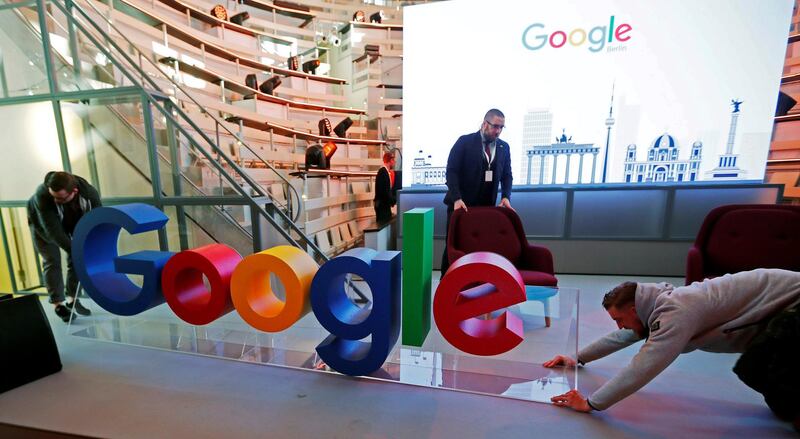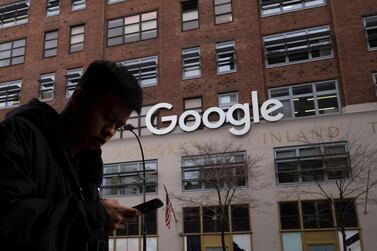It's expensive to be market-dominant. This is a lesson Alphabet’s Google has learned not once or twice, but three times in a trio of antitrust fines levied in as many years by the European Union against the technology giant, bringing the total to €8.2 billion (Dh34.29bn).
The antitrust investigations by the commission go back to 2010, but the first action against Google came in June 2017 when it was slapped with a €2.42bn fine and again in July 2018 when the EU levied €4.34bn against it.
Google is paying its debts - in 2018 the tech giant reportedly paid more in fines to the EU than it set aside for taxes globally. Any fines paid to the EU go directly into the union's budget.
This week, Google was fined €1.49 billion by the EU for illegal practises that thwarted competition in relation to one of its search products, EU commissioner for competition Margrethe Vestager said on Wednesday.
What was the most recent case against Google?
The most recent case found that Google "denied other companies the possibility to compete on ... merits and to innovate,” according to Ms Vestager at a press conference this week.
The Google product in question is AdSense for Search, which it launched in 2006, that allowed companies like e-commerce merchants and media to put a Google search bar on their websites. When visitors used the Google search box, Google showed them ads and shared the commission from those ad views with its customers, the website owners.
Over time, Google amended its contracts with its AdSense customers. At first, they were prohibited from including competitor search engines alongside the Google search bar. Within a few years, Google began allowing competitors in with the caveat that Google's search bar had to be the most prominent.
How has Google responded?
In 2016, around the time the EU opened its case against Google, the company removed these AdSense contract terms altogether, and the fine this week was lower than the previous two as Google actively worked with the European Commission to amend its policies. Google's senior vice president of global affairs, Kent Walker, emphasised in a statement that Google has been working with the Commission "for nearly a decade" to inform them of changes to its products and how they work.
“We’ve always agreed that healthy, thriving markets are in everyone’s interest. We’ve already made a wide range of changes to our products to address the Commission’s concerns. Over the next few months, we’ll be making further updates to give more visibility to rivals in Europe.”
What comes next?
AdSense contributed less than 20 per cent of the company’s income in 2015 and has continued to go down since, according to Bloomberg. “If you look at the annual reports, AdSense is less and less relevant,” Bloomberg Intelligence analyst Aitor Ortiz said. “A fine isn’t likely to cause long-term harm to the company as AdSense has been replaced by other products."
During the press conference, Ms Vestager offered updates on Google’s actions since its other two antitrust fines. Found to be manipulating shopping search results, Ms Vestager said that Google increased the visibility of rivals from 6 per cent of search results to 40 per cent since the EU's fine. Ms Vestager also said that in response to the antitrust case made against Android, Google's mobile operating system, Google this week began giving users a choice about the browser and search engine they use on their phones, instead of defaulting to Google products.








